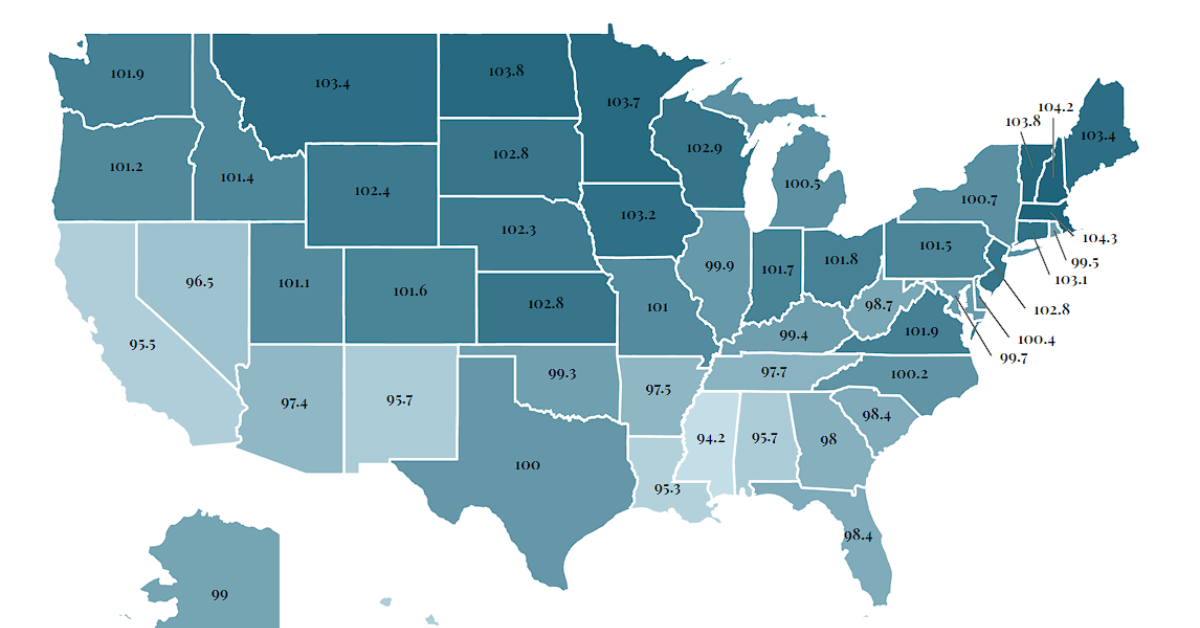
Stereotypes and misconceptions about the intelligence of different U.S. states have persisted for years. However, it is essential to recognize that measuring the intelligence of an entire state is complex and can perpetuate harmful biases. This article aims to shed light on the issue by exploring the factors that contribute to such stereotypes and highlighting the dangers of generalizations based on geographic regions.
1. The Complexity of Intelligence
Intelligence is a multifaceted trait that cannot be accurately measured by simple metrics. It encompasses various cognitive abilities, problem-solving skills, and creativity. Attempting to label an entire state as the “dumbest” oversimplifies a complex trait and undermines the diverse talents and strengths present in every region.
2. Socioeconomic Factors
Stereotypes about intelligence often overlook the impact of socioeconomic factors. States with lower average income levels may face challenges in providing quality education and access to resources. These factors can influence standardized test scores and contribute to the perpetuation of stereotypes.
3. Education Disparities
Educational disparities can play a significant role in shaping perceptions of intelligence. Variations in school funding, teacher quality, and curriculum can lead to differences in academic achievement across states. It is important to address these disparities rather than perpetuating negative stereotypes.
4. Cultural and Geographic Differences
Cultural and geographic diversity across states can contribute to differences in educational priorities and approaches. Rather than attributing these differences to intelligence, it is more productive to acknowledge the richness of cultural diversity and its contribution to society.
5. Addressing Bias and Prejudice
Labeling a state as the “dumbest” reinforces bias and prejudice and perpetuates negative perceptions. It is crucial to challenge these stereotypes and recognize that intelligence cannot be accurately gauged by state borders.
6. Celebrating Achievements
Every state has its unique strengths and achievements. Highlighting success stories, innovative initiatives, and contributions from each state can help shift the focus from negative stereotypes to positive accomplishments.
7. Promoting Inclusivity and Understanding
Rather than perpetuating harmful stereotypes, we should focus on promoting inclusivity and understanding. Recognizing the diverse talents, achievements, and potential of individuals from all states contributes to a more accurate and positive narrative.
Stereotypes about intelligence in different U.S. states are oversimplifications that fail to capture the complexities of human potential and achievement. It is essential to challenge these misconceptions and focus on addressing educational disparities, promoting inclusivity, and celebrating the unique strengths of each state. By doing so, we can foster a more accurate and nuanced understanding of intelligence that reflects the diversity and richness of the American experience.
